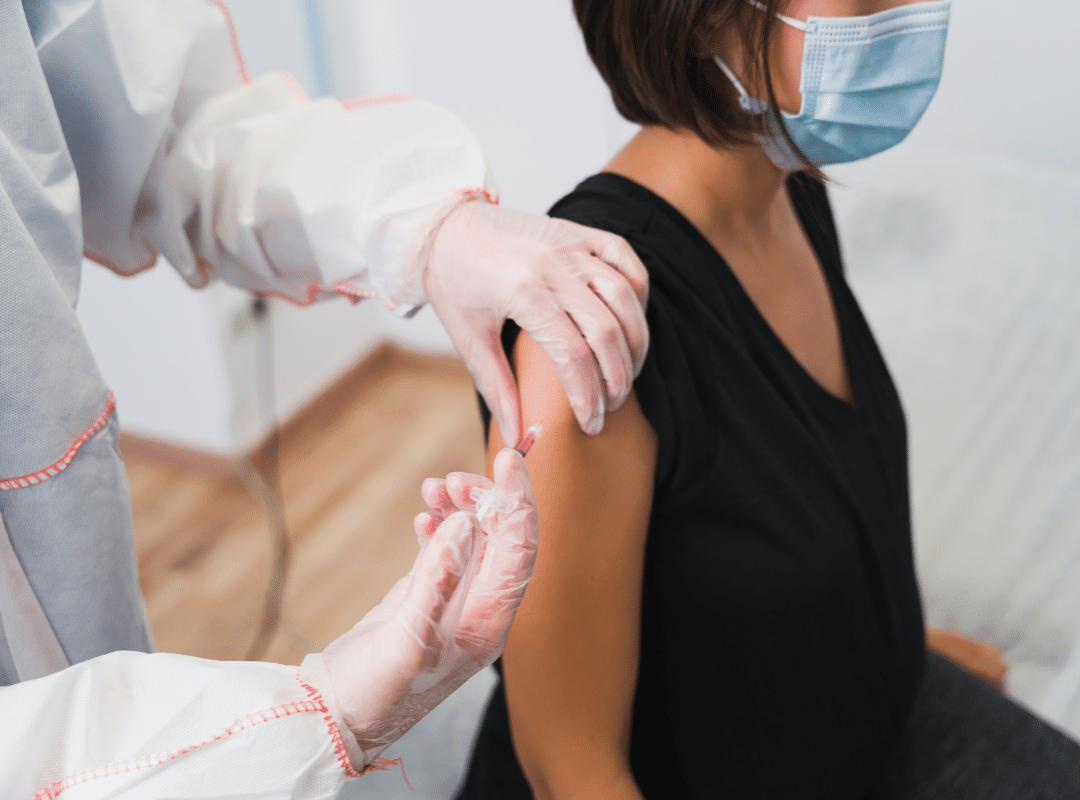Whooping cough is often thought of as a childhood illness, but it can pose serious health risks to seniors as well. For the elderly, whooping cough isn’t just a nuisance—it can be life-threatening due to weakened immune systems and pre-existing conditions. Recognizing the early signs and taking proactive steps can make a critical difference in recovery.
This guide will help you understand the symptoms, stages, and treatments of whooping cough in older adults. Whether you’re a caregiver or family member, knowing how to manage this illness—from nighttime relief to vaccination—can significantly improve outcomes and reduce complications.
For more resources, visit Arcadia Senior Living Louisville.
Understanding Symptoms of Whooping Cough in Older Adults
When it comes to symptoms of whooping cough in adults, the signs can be subtle at first but escalate quickly. During the early (catarrhal) stage, symptoms may appear as a common cold: sneezing, sore throat, mild cough, or fatigue. However, for seniors, this stage can be deceptive and delay diagnosis.
As the illness progresses, these initial symptoms can intensify into uncontrollable coughing fits. Seniors may experience:
- Persistent dry coughs
- Shortness of breath
- Vomiting after coughing fits
- Fatigue due to lack of sleep
- Difficulty eating or drinking
If your loved one also suffers from conditions like diabetes or heart disease, whooping cough can lead to complications such as pneumonia or rib fractures. Read more about managing health conditions in seniors with diabetes care.
What Are the 3 Stages of Whooping Cough?
Understanding what are the three stages of whooping cough helps in early detection and recovery planning:
1. Catarrhal Stage (1–2 weeks)
This stage resembles a regular cold and includes a runny nose, sneezing, low-grade fever, and mild coughing. It’s the most contagious phase, which makes early intervention key.
2. Paroxysmal Stage (1–6 weeks)
This is the most severe stage. The elderly may experience:
- Severe coughing fits
- Vomiting after coughing
- Exhaustion or difficulty breathing
- A “whooping” sound when inhaling (though not all adults exhibit this)
3. Convalescent Stage (2–3 weeks or longer)
Coughing gradually lessens, but fatigue can persist. During this time, patients are still vulnerable to secondary infections.
Understanding the timeline and progression of these stages can help caregivers take timely action. During prolonged illness, consider respite care services to help support your loved one.

How to Treat Whooping Cough in Adults
Early diagnosis and treatment are essential to prevent complications. If you’re wondering how to treat whooping cough in adults, the following steps are crucial:
- Antibiotics: These are most effective during the first stage of the illness. Though they may not reduce the severity in later stages, they help prevent transmission.
- Hydration: Encourage frequent drinking of fluids to loosen mucus and maintain energy levels.
- Rest: Provide a calm, quiet space for rest and recovery.
- Breathing Treatments: In severe cases, nebulizers or oxygen support may be prescribed.
A medical provider may perform a nasal swab or blood test to confirm the diagnosis. Early detection combined with a supportive environment can significantly reduce risks. Learn how a compassionate staff improves recovery outcomes for seniors.
How to Stop Whooping Cough at Night
How to stop whooping cough at night is a common concern for caregivers and families. Nighttime coughing can disrupt sleep and exacerbate fatigue, particularly in older adults. Here are effective strategies to reduce nighttime symptoms:
Strategy | Description |
Elevated Head | Use extra pillows to reduce postnasal drip. |
Cool-Mist Humidifier | Moisturizes the air and soothes the airway. |
Warm Beverages | Chamomile tea or warm water can calm the throat. |
Prescribed Cough Relief | Ask a doctor about appropriate medications. |
Allergy-Proof Room | Keep bedding and rooms free from irritants. |
Creating a comfortable space focused on safety and comfort can reduce nighttime distress and support recovery.
The Importance of Tdap Vaccination
Prevention is always better than cure, especially for elderly whooping cough. The Tdap vaccine protects against tetanus, diphtheria, and pertussis (whooping cough), and it’s recommended for seniors every 10 years.
Here’s why it matters:
- Protects vulnerable individuals with weakened immune systems
- Prevents the spread to grandchildren or other family members
- Reduces symptom severity even if infection occurs
Vaccination remains a cornerstone of prevention. Discuss immunization updates with your healthcare provider and consider communities like Arcadia Senior Living that prioritize resident health.
You can learn more about vaccination schedules on the CDC’s website.
Complications to Monitor Closely
Whooping cough in older adults can lead to serious complications. If untreated or prolonged, it can develop into:
Pneumonia
One of the most dangerous complications, pneumonia, can result from bacteria entering the lungs during persistent coughing. Seniors should be monitored for:
- Labored breathing
- Chest pain
- Fever or chills
- Blue-tinged lips or fingertips
Rib Fractures & Muscle Strain
Frequent coughing can lead to broken ribs or strain on the abdominal muscles. These injuries can make coughing even more painful and recovery slower.
Chronic Fatigue
Even after the coughing subsides, seniors may continue to experience ongoing exhaustion. Encourage small bursts of activity, nutritious meals, and hydration to aid full recovery.
Read more about risk factors and solutions in this Mayo Clinic article on whooping cough.
Compare The Costs of Senior Living
vs Staying at Home
Respite Care and Ongoing Support
If you’re a caregiver, you don’t have to handle recovery alone. Respite care offers short-term professional help so you can rest while ensuring your loved one is cared for.
Benefits of Respite Care:
- Trained nursing staff administer treatments and monitor symptoms.
- Emotional and physical relief for family caregivers.
- Access to proper nutrition, hydration, and supervised rest.
- Opportunity for seniors to socialize and heal in a comfortable space.
Explore your options for short-term recovery support or long-term housing solutions with Arcadia Senior Living Louisville.
Your Next Steps Toward Better Senior Health
Understanding the risks and remedies for elderly whooping cough empowers you to protect your loved ones from long-term harm. Recognize early symptoms of whooping cough in adults, take action during each of the 3 stages of whooping cough, and learn how to treat whooping cough in adults with effective care strategies. Prioritize prevention, especially through Tdap vaccination, and remember that knowing how to stop whooping cough at night can greatly improve rest and recovery.
If you’re ready to take the next step, contact Arcadia Senior Living Louisville at 502-244-4244. You can also schedule a tour to explore how our community can support you or your loved one through illness and recovery.
Frequently Asked Questions
What are the long-term effects of whooping cough in adults?
Whooping cough in adults can lead to long-term complications if left untreated. The severe coughing fits may lead to cracked ribs, hernias, or urinary incontinence. In some cases, adults may experience prolonged fatigue and breathing difficulties even after the infection has cleared. Individuals with weakened immune systems or pre-existing conditions may be at a higher risk of complications.
How do you treat whooping cough in the elderly?
Treatment for whooping cough in the elderly typically includes antibiotics to reduce the spread of the infection. Doctors may also recommend cough suppressants, hydration, and rest to ease symptoms. In severe cases, hospitalization may be required to monitor breathing and prevent complications such as pneumonia. Supportive care, including oxygen therapy, may also be necessary for older adults with weakened lungs.
How long is a person contagious with whooping cough?
A person with whooping cough is most contagious during the first two weeks of severe coughing. If antibiotics are started early, the infectious period can be shortened to approximately five days after treatment begins. Without antibiotics, the infection can remain contagious for up to three weeks. This is why early diagnosis and treatment are crucial in preventing the spread of the disease to others.
How long does whooping cough last in the elderly?
In the elderly, whooping cough can last for six to ten weeks or longer, depending on the individual’s overall health and the effectiveness of treatment. The illness typically progresses in three stages: mild cold-like symptoms, intense coughing fits, and a slow recovery phase. Older adults may take longer to recover due to weaker immune systems or other underlying health conditions. Prompt treatment can help shorten the duration and reduce the likelihood of complications.


